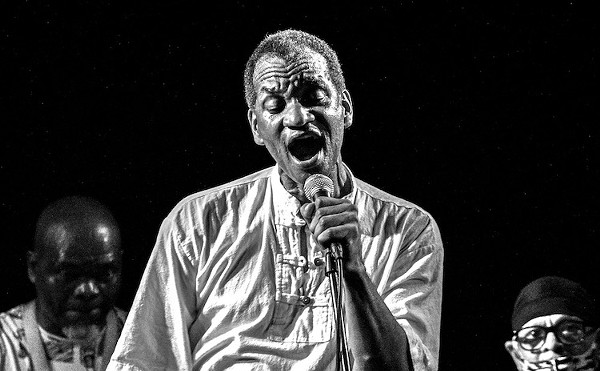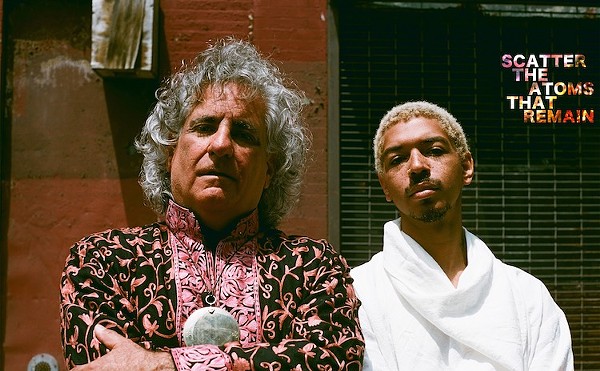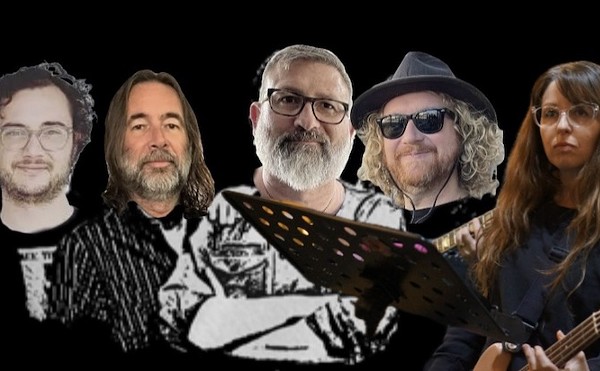The Latin phrase conditor almo siderum translates as creator of the stars. But for Orlando-based composer George Atwell, the words "creator" and "composer" might as well be synonymous. That's because he labored a year to create his "Mass for a New Millennium," a piece that borrows the Latin phrase as a title for one of its 11 movement and which Atwell wrote for four full choirs and a full orchestra.
Despite the ambition of a work containing 11 movements, Atwell's mass is not the culmination of his 20-year career as a record producer, keyboardist, composer and arranger, during which he's worked with the likes of Julio Iglesias and Michael Jackson. Indeed, this is his third major work -- merely another step toward his next one, and his dream of eventually finding an international audience.
"Somebody asked Stravinsky what this favorite piece was," says Atwell, "and he said the one he was working on right now. Otherwise you never go on; you stay in love with the last one."
His ambition for a wider audience is also why Atwell is publishing the new composition under the pen name Wells Mijen, in hopes it will transcend geography and not be pigeonholed as the work of a "local yokel."
Certainly geography does not limit Atwell's passion for his work. His mass, which evolved from a drive to "create a synthesis of the mind and spirit for people," took root two years ago when wrote these lyrics: "Oh God of every hope and dream, fix your eyes upon the coming of the age ... bring us back to your kingdom of love today. The future is now. Now we need to help bring about your kingdom."
Sitting in his office at First Presbyterian Church of Orlando, where he is the organist and associate choir director, Atwell is flanked on one side by a computer and on the other by a large cabinet stuffed with hundreds of vinyl albums. He is contemplative as he searches for words to explain his work. His grand design, he says, was to write a piece that would reflect the tradition of composers such Mozart, Bach and Beethoven, each of whom wrote formal masses in their own times, but marry it with contemporary elements.
Unlike those who believe technology to be the harbinger of disaster for mankind, Atwell sees the old and new in a kind of sacred marriage. That was especially evident to him in the recent New Year's Eve celebrations broadcast via satellite from points all over the planet. Those celebrations, he says, "were traditional, almost tribal, an ancient celebration of this new age -- sort of a meeting of technology with tradition," he says.
His innovations are most obvious in the blending of traditional Latin lyrics and music with technological terms and modern music. But add two Orlando Opera soloists -- soprano Mary Ellen Duncan and tenor Keith Brant -- four full choirs and a full orchestra, all conducted by Atwell inside the acoustically sound church sanctuary, and the one-time performance promises enough dramatic coercion to delight technological cynics and classical music lovers alike.
The work's introductory movement, titled "All Things New," is based on the Bible's Book of Revelations, says Atwell -- but not in the traditional sense. "I don't think it's referring to the end-times scenario -- [the] fire and brimstone. I'm thinking more of the creative spirit, always making things new," he says. The piece is heavy with technological terms, the first line a frenetic, fast-forward songfest of "One kilobyte, one megabyte, one gigabyte, one terabyte," punctuated with a chorus of "smaller, faster, cheaper." Atwell plays on words throughout the piece -- for example, intoning "in terabyte pax," a parody on the Latin phrase in terra pax, which means peace on Earth. The piece attempts to show in a musical fashion, he says, "that technology is with us every day, and we're not even aware of it."
Another movement, "What Is Machine?," has perhaps the most compelling theme, asking questions of a possible future where computers will have the brainpower of 100 brains, an event that will pose all kinds of moral and ethical dilemmas. "I didn't want to sound angry," says Atwell. "We think of machines as cold and unfeeling and precise, in pejorative terms. [But this] is sung as if it were the most sacred text, different than what you think about machines."
He adds, "It's a performance piece, not a mass. [I hope] the spiritual element of the music will work its way into the heart of the people, [especially] the younger, hipper, faster crowd."
















